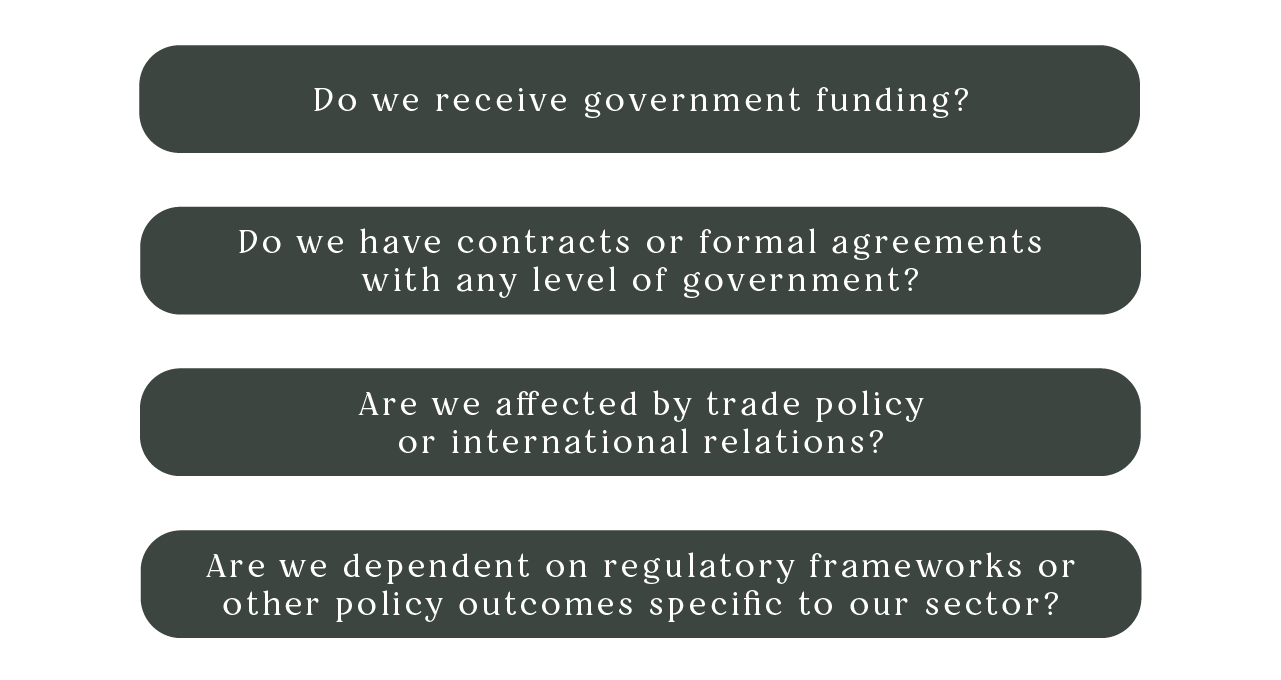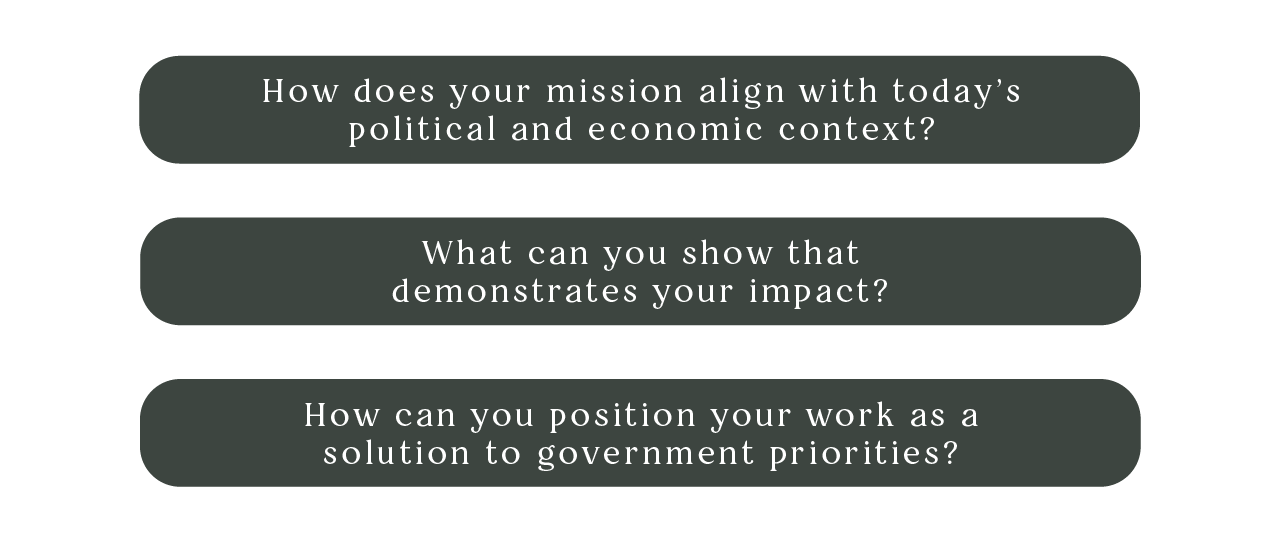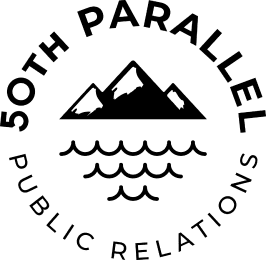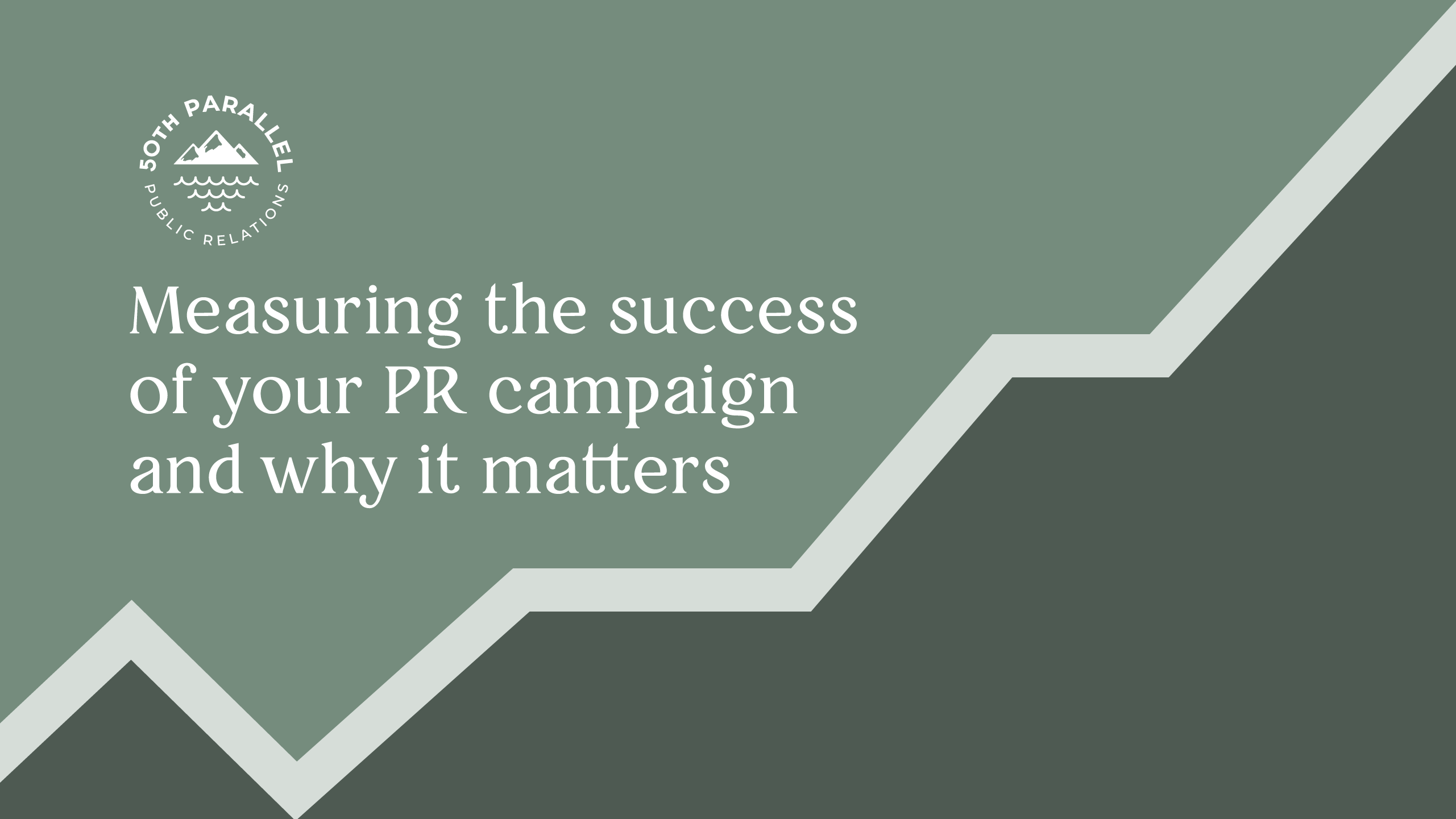This year has already been a whirlwind in Canadian politics—and we’re not even halfway through. We’ve seen everything from trade tension with the U.S. to provincial shakeups and a looming federal election. Political uncertainty is dominating headlines and its impact is being felt not just in Ottawa, but among our clients and communities across the country.
According to Abacus Data, 64% of Canadians disapproved of the government at the start of the year. That number has dropped to just 25% in the latest polls. These swings signal more than just changing poll numbers—they underscore uncertainty that organizations must navigate.
This instability has affected voting intention. What was once predicted to be one of the most significant Conservative party victories in history is now a contested election in which the Liberals seemed to have regained momentum.
This level of change in such a short time is bound to be unsettling. With proactive planning, your organization can stay resilient, no matter the political climate. Below, we share recommendations to help you navigate these changing times, whether engaging with policymakers, adapting your strategy or positioning your organization for success, regardless of who is in government.

Uncertainty is stressful, but preparation can bring calm in the chaos. The first step to managing an unstable political environment is to assess how it can impact you. Ask yourself:

Even if your organization has no direct ties to the government, it’s still at risk for broader changes, such as economic impacts triggered by trade disputes or policy decisions. A strong network will allow you to stay informed. Business associations are often effective at tracking political developments that may impact their members. Similarly, not-for-profit organizations are organized to varying degrees across the country. For example, the Ontario Nonprofit Network groups 58,000 nonprofits in Ontario, while Vantage Point is working to establish a similar network in British Columbia. Staying connected ensures you’re not navigating these tricky times alone.
It’s also wise to think financially. Political turbulence can lead to economic slowdowns. For example, the ongoing trade war with the U.S. could affect the economy, and eventually, lead to a recession. Many companies are diversifying their target markets, cutting costs and adapting their marketing strategies, which are tactics worth considering.
Once you’ve assessed your risks and begun planning for financial resilience, it’s equally important to consider how you communicate your organization’s relevance and impact.

Whoever wins the general election will likely refocus priorities in a more dramatic way than what we have seen in the past. This means governments will likely be scrutinized for what they keep and cut. They’ll be looking for clear, strategic value in the partnerships they maintain—including with organizations like yours. That means you must be prepared to prove your organization’s worth and why it makes sense for them to continue investing.
This goes beyond your mission and values. You need to show why your work is a smart investment for the government. For example, you can highlight how your work positively impacts the economy, job creation and support for Canadian businesses. Start by reviewing your messaging:

Consider preparing tailored messaging options based on who wins the general election and what platform they ran on. Preparation now can pay off in the months to come.

Newly elected officials are often overwhelmed with incoming communications from every sector. Instead of becoming just another voice in the crowd, focus now on building a foundation that sets you up for meaningful engagement when the time is right.
Here are some key steps:

Build a supporter network. Launch a mailing list or update your existing one. Keep your supporters informed and engaged so they can amplify your message when it matters most.

Foster coalitions. Strength lies in numbers. Connect with like-minded organizations and advocates to build relationships and alliances now so you can support each other in the future.

Position yourself as a thought leader. People crave authenticity and connection in modern communications. Share your organization’s values and insights through articles, videos or social media. Be a voice people recognize and trust in your field.

Monitor candidates and their platforms. Track where parties and candidates stand on issues that matter to your organization. Understanding where your priorities align can guide future engagement.

At 50th Parallel PR, we’ve helped dozens of organizations navigate political transition with clarity and confidence. Whether you’re looking to sharpen your messaging or build strategic partnerships, our team is here to support you.
To schedule a free introductory meeting to discuss how we can support you and your organization during this time of change, fill out our contact form:











